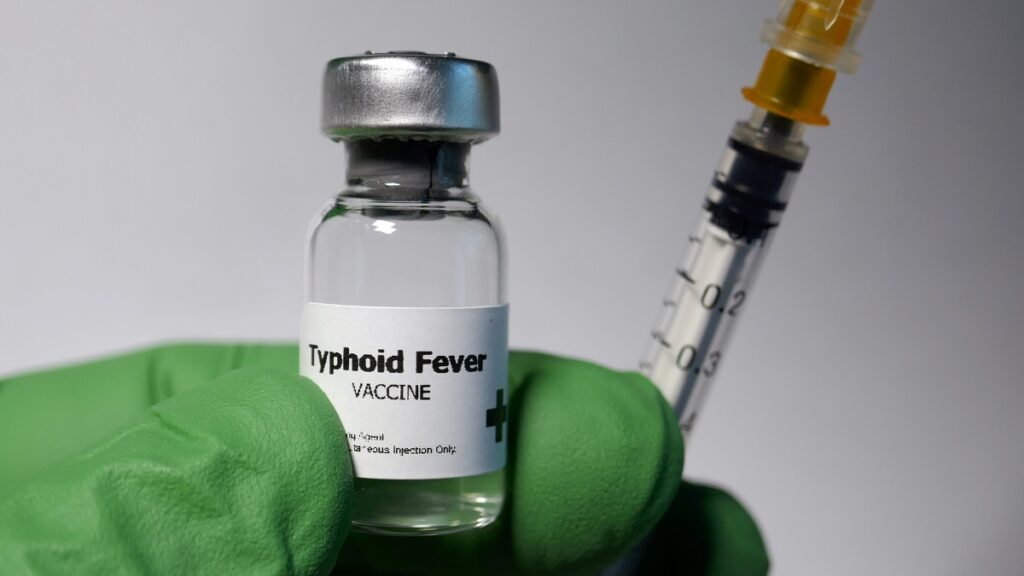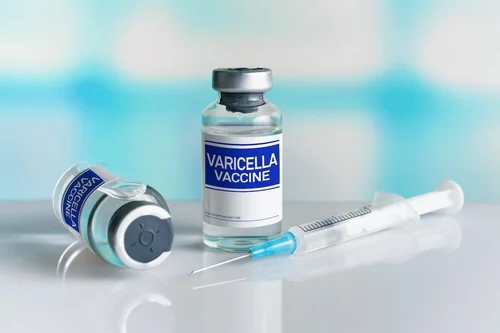Typhoid Vaccine
Introduction To Typhoid Vaccine Typhoid fever, a potentially life-threatening bacterial infection caused by Salmonella enterica serotype Typhi, remains a significant global health concern, particularly in regions with inadequate sanitation and clean water. Despite advancements in healthcare, the disease continues to affect millions of people worldwide, resulting in substantial morbidity and mortality. Vaccination is a crucial strategy for preventing typhoid fever and reducing its burden on public health systems. This article provides a comprehensive overview of the typhoid vaccine, encompassing its history, types, effectiveness, usage guidelines, side effects, and recent developments. By understanding the various aspects of typhoid vaccination, individuals and healthcare providers can make informed decisions regarding its use and contribute to efforts to control the spread of this disease. A Brief History of Typhoid Vaccine The development of typhoid vaccines dates back to the late 19th century when the disease was a major public health threat, particularly in crowded urban areas and military camps. Early attempts at vaccination involved the use of heat-killed or attenuated bacteria, which provided some protection but were often associated with adverse reactions. In 1896, British bacteriologist Almroth Edward Wright introduced a vaccine made from the typhoid bacterium, marking a significant milestone in the history of typhoid immunization. This vaccine, while not as effective as modern options, laid the foundation for future developments. Over the following decades, research and advancements in vaccine technology led to the development of more effective and safer typhoid vaccines. The introduction of the Vi polysaccharide vaccine in the 1960s and the live attenuated oral vaccine (Ty21a) in the 1970s represented major breakthroughs in typhoid prevention. Today, typhoid vaccines are widely available and have played a crucial role in reducing the incidence of the disease in many parts of the world. However, challenges such as the emergence of drug-resistant typhoid strains and limited access to vaccination in certain regions continue to pose significant obstacles to achieving complete control of the infection. Types of Typhoid Vaccine There are primarily three types of typhoid vaccines currently available: Typhoid Conjugate Vaccine (TCV): This newer vaccine offers superior protection, especially in young children. It is composed of a typhoid polysaccharide antigen conjugated to a protein carrier, which enhances the immune response and provides longer-lasting immunity. TCV is one of the most effective typhoid vaccine available and is recommended for individuals of all ages. Vi Polysaccharide Vaccine (ViCPS): This injectable vaccine is composed of purified Vi polysaccharide, a component of the typhoid bacterium’s outer membrane. ViCPS is effective in preventing typhoid fever in individuals aged two and above, but its duration of protection is relatively shorter compared to TCV. Live Attenuated Oral Vaccine (Ty21a): This oral vaccine is a weakened form of the typhoid bacterium. It is generally effective in preventing typhoid, but it may not be suitable for immunocompromised individuals or pregnant women. Ty21a also requires multiple doses and may have a shorter duration of protection compared to TCV. Who Should Get Vaccinated? The Centers for Disease Control and Prevention (CDC) and the World Health Organization (WHO) recommend the typhoid vaccine for the following groups: Travelers visiting regions with high rates of typhoid fever, such as South Asia, Southeast Asia, and parts of Africa. Individuals living in or working in areas with poor sanitation and inadequate access to clean water. Healthcare workers who may be exposed to typhoid-infected patients. Children in areas where typhoid is endemic. Individuals with underlying medical conditions that increase their risk of typhoid infection. The specific type of vaccine recommended may vary depending on the individual’s age, health status, and travel itinerary. It is important to consult with a healthcare provider to determine the most appropriate vaccine for your needs. Effectiveness and Safety The typhoid conjugate vaccine (TCV) is one of the most effective option, with studies demonstrating 85-90% Efficiency in preventing typhoid fever. The Vi polysaccharide vaccine and the live attenuated oral vaccine (Ty21a) are also effective, but they may have lower efficacy rates or shorter durations of protection compared to TCV. The overall safety profile of typhoid vaccines is generally favorable. Common side effects may include injection site reactions, fever, fatigue, and gastrointestinal symptoms. Serious adverse reactions are rare but can occur. It is important to report any unusual symptoms to a healthcare provider. Side Effects Of Typhoid Vaccine Common Side Effects Most people who receive the typhoid vaccine experience mild, self-limiting side effects, which typically include: Injection site reactions (for TCV and ViCPS): Redness, swelling, or tenderness at the injection site. Fever: A low-grade fever may develop after vaccination. Gastrointestinal symptoms (for Ty21a): Some may experience nausea, vomiting, or diarrhea after taking the oral vaccine. Rare Side Effects Serious side effects from the typhoid vaccine are very rare but can include allergic reactions such as: Anaphylaxis: A severe allergic response that requires immediate medical attention. Recent Developments In recent years, there has been a growing concern about the emergence of drug-resistant typhoid strains, which can make the infection more difficult to treat. This has highlighted the importance of vaccination as a preventive measure against typhoid fever. Global health organizations and governments are actively working to increase access to typhoid vaccines, particularly in regions at high risk for the disease. Efforts are also underway to develop new and improved vaccines that may offer broader protection against different strains of typhoid and provide longer-lasting immunity. Conclusion Typhoid fever remains a significant global health challenge, but the availability of effective vaccines offers hope for prevention and control. By understanding the types of typhoid vaccines, their effectiveness, and recommended usage guidelines, individuals and healthcare providers can make informed decisions regarding vaccination and contribute to efforts to reduce the burden of this disease. As research and development continue to advance, it is likely that even more effective and accessible typhoid vaccines will become available in the future. By staying informed about the latest developments and ensuring widespread access to vaccination, we can work towards a world free from typhoid fever. Disclaimer This article is just for information purposes only. Dont’t take it as

